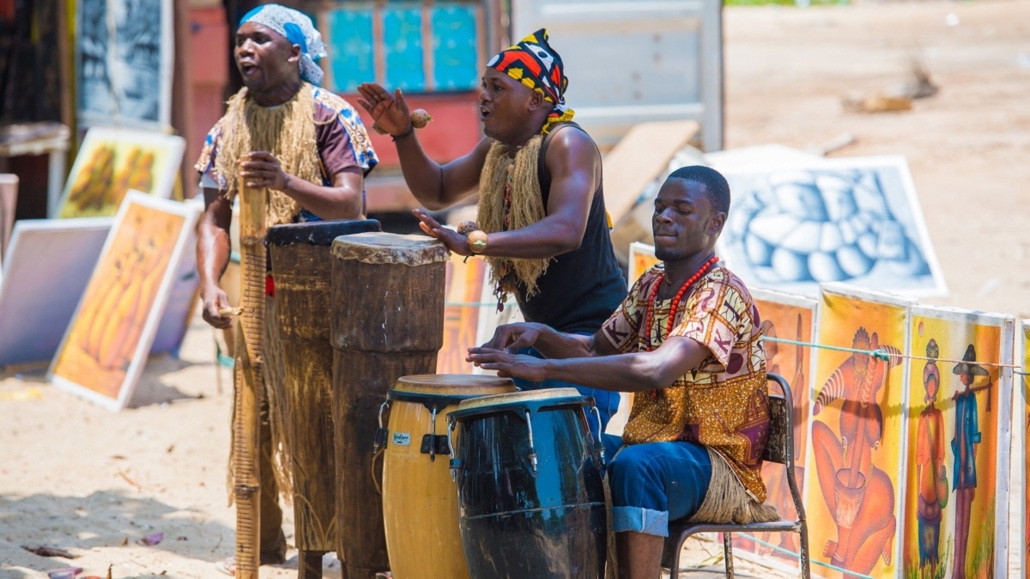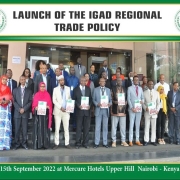Angola harnesses the potential of its creative industries

Angola has more than 450 firms operating in the cultural and creative field with an annual turnover of more than $662 million, according to the country’s National Institute of Statistics. But these figures don’t cover informal activities, which have high significance in Angola’s cultural and creative industries.
A shared language and the presence of the Angolan diaspora in Brazil, Portugal and other Portuguese-speaking African countries have created an international market for Angola’s cultural and creative expressions like music, literature, audiovisual production, performing arts and handicrafts.
But Angola lacks proper resources, institutions and the capacity to benefit from its creative industries and diversify its oil-dependent economy.
To help the country harness its cultural and creative industries, UNCTAD conducted a workshop in the capital Luanda from 30 January to 1 February for public and private stakeholders to discuss how to improve economic activities in these industries to provide greater opportunities for entrepreneurs and creators, particularly young people.
“Angola’s cultural and creative industries can generate income for artists and creators, families and the state, if the sector is developed further,” said Domingas Monte, Director of the country’s National Institute of Cultural and Creative Industries.
The workshop was part of the EU-UNCTAD joint programme for Angola: Train for Trade II financed by the European Union.
Challenges to overcome
Participants discussed UNCTAD’s report entitled “Mapping the cultural and creative industries in Angola”, examining Angola’s rich cultural and creative scene and challenges to overcome to strengthen the industries and create economic value for the country.
The report notes that Angola has no official definition, taxonomy or classifications that could reflect the economic potential of its creative industries. The lack of definition and measurements hinders the country from estimating the full economic weight of cultural and creative industries, discounting their socioeconomic benefits to the Angolan economy.
The lack of awareness has also led to the absence of effective policies and resources to strengthen and promote the sector. Currently, the government spends less than 0.3% of its budget on activities related to culture and creative industries.
“The biggest reason for not valuing the creative industry in Angola is the widespread culture of piracy and lack of institutions that guarantee protection of intellectual property rights,” said Igor Chaves, an Angolan cultural agent and consultant on intellectual property rights. “This prevents creators from earning money from their creations.”
The report also shows that only 36% of Angola’s population has access to quality internet and the country is not connected to international online payment systems. With rapid digitalization in creative and cultural industries, this can deter large-scale production and consumption and hamper access to local, domestic and international markets.
Regardless of the difficulties faced by Angola’s creative industries “it is good that we can come together as a community and work towards strengthening this industry for our common good,” said Marlem Ndinelau, an Angolan artist who participated in the workshop.
Towards a national strategy
To formulate a national strategy for cultural and creative industries in Angola, UNCTAD calls on stakeholders to:
- Improve and disseminate existing data about cultural and creative industries to assess their socioeconomic contribution to the Angolan economy and as a tool to increase public awareness.
- Develop clear public structures and partnerships to support the development of cultural and creative industries, and an effective policy and regulatory framework that provides sponsorship incentives and strengthens copyright and intellectual property right protection.
- Improve access to digital infrastructure, especially quality and affordable internet, and link the traditional cultural and creative industry with modern digital tools like international online payments.
- Promote education and continuous training in cultural and creative fields, including in complementary areas like entrepreneurship, management, marketing and promotion.
- Enhance the “Creative Angola” brand to promote the sector in Angola and abroad and increase attractiveness in domestic and international cultural and tourism circles.
UNCTAD will organize four online meetings in the coming months to follow up with stakeholders in Angola on these recommendations.
Published on: UNCTAD
Publication Date: 03/02/23
Link: https://unctad.org/news/angola-harnesses-potential-its-creative-industries


 CNBC Africa
CNBC Africa 
 Africa News
Africa News
